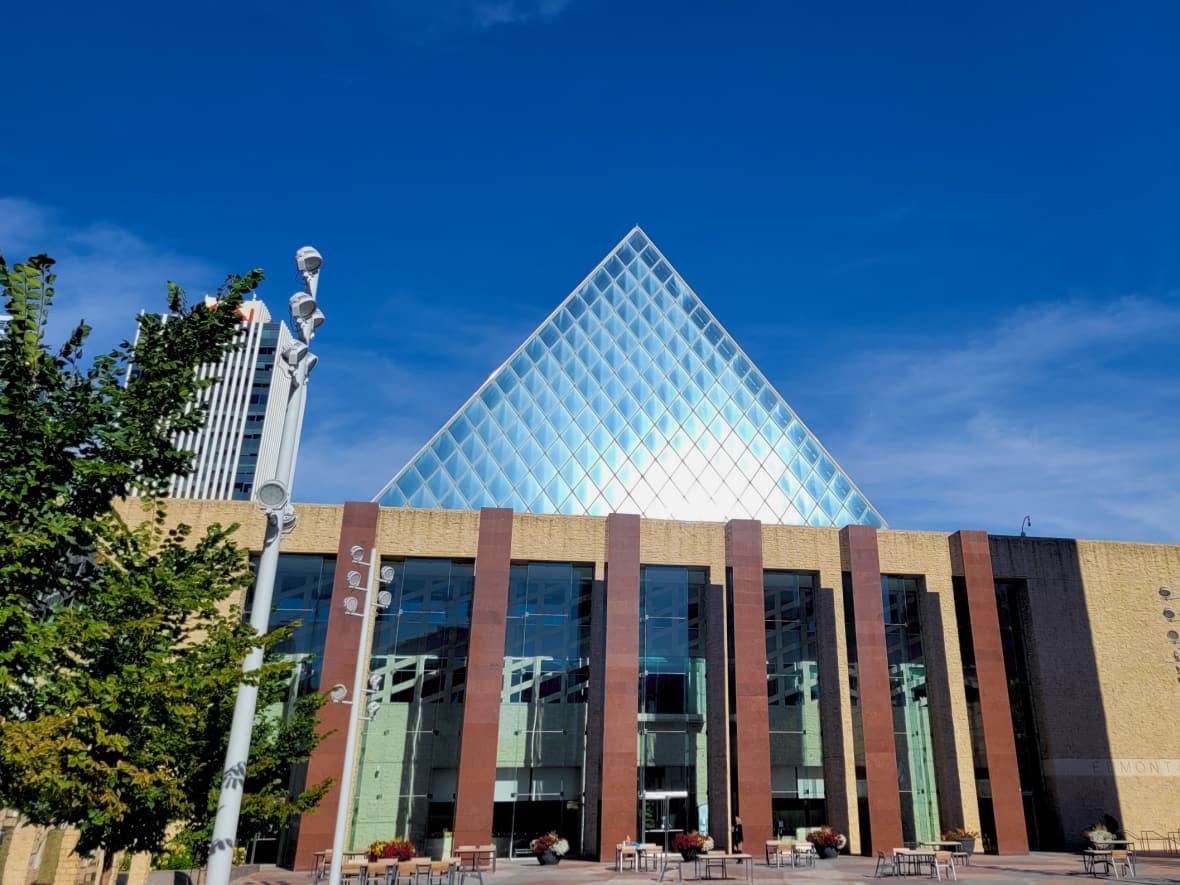Edmonton's proposed $7.75B capital budget focuses on infrastructure repairs and new projects

The City of Edmonton heads into a four-year budget cycle with the goal to renew critical infrastructure like roads, facilities and transit and add new projects.
The city's proposed four-year capital budget, released Thursday, contains $7.75 billion in spending from 2023 to 2026.
Stacey Padbury, the city's chief financial officer, said the budget balances repairs and rehabilitation with building new infrastructure.
"As our city continues to grow, we need to ensure we're taking care of investments we've already made while being smart and strategic about funding new projects," Padbury said in a news conference Thursday.
More than $2.2 billion is recommended for maintaining the city's existing infrastructure, including rehabilitating the High Level Bridge and William Hawrelak Park and improving pathways, roads, transit and parking services.
"Much of our infrastructure is currently at an age where it needs maintenance," Padbury said.
Adam Laughlin, manager of integrated infrastructure services, said the city would like to have $3.5 billion to rehabilitate roads, sidewalks, trails and facilities, but is prioritizing the most important projects.
"Even in the best of times, we would be challenged to maintain our infrastructure to the optimal level," he said.
LRT and rec centres
More than half of the capital budget — $4.4 billion — is earmarked for approved construction projects.
These include the Blatchford redevelopment, the Yellowhead Trail freeway conversion, the Lewis Farms and Coronation recreation centres and three LRT expansion projects: Valley Line West, Capital Line South Phase 1 and Metro Line to Blatchford;
Administration is recommending the city begin replacing the original LRT fleet, which is more than 40 years old.
Like other governments, the city is coping with significant economic uncertainty because of inflation, global conflict and other factors, Padbury noted.
"This capital proposal responds to these challenges with a focus on what's most important: renewing existing infrastructure and advancing new projects that are critical to the city's growth," Padbury said.
Projects deferred
Some projects the city started, in design or concept, will likely not be funded during the next budget cycle if council agrees with administration's recommendations.
Dozens are now listed as "unfunded growth projects."
They include Touch the Water Promenade — an envisioned walkway, plaza, and improved access to the Rossdale power plant and river estimated to cost $34 million to move ahead.
"This work is considered essential for the successful development of a signature amenity in the central river valley, and will support advancement of other projects in the River Crossing Area," the report says.
Also on the unfunded list is the detailed design and construction of Rollie Miles Recreation Centre in Old Strathcona, at $75 million.
Improvements to Saskatchewan Drive and the adjacent bike network from 99th Street to 109th Street, expected to cost about $37 million, are also not recommended by city administration.
Laughlin said sports fields, park upgrades, recreation facilities and numerous road-widening projects have been deferred because of a lack of resources.
"It is quite a long list, which is a reflection of a growing city," Laughlin said.
City managers will present the proposed capital budget to city council at a meeting on Oct. 31.
The proposed operating budget, which includes potential property tax increases, will be released on Nov. 3.
City council will start debating the capital and operating budgets in November and will be expected to approve the financial plans in December.


